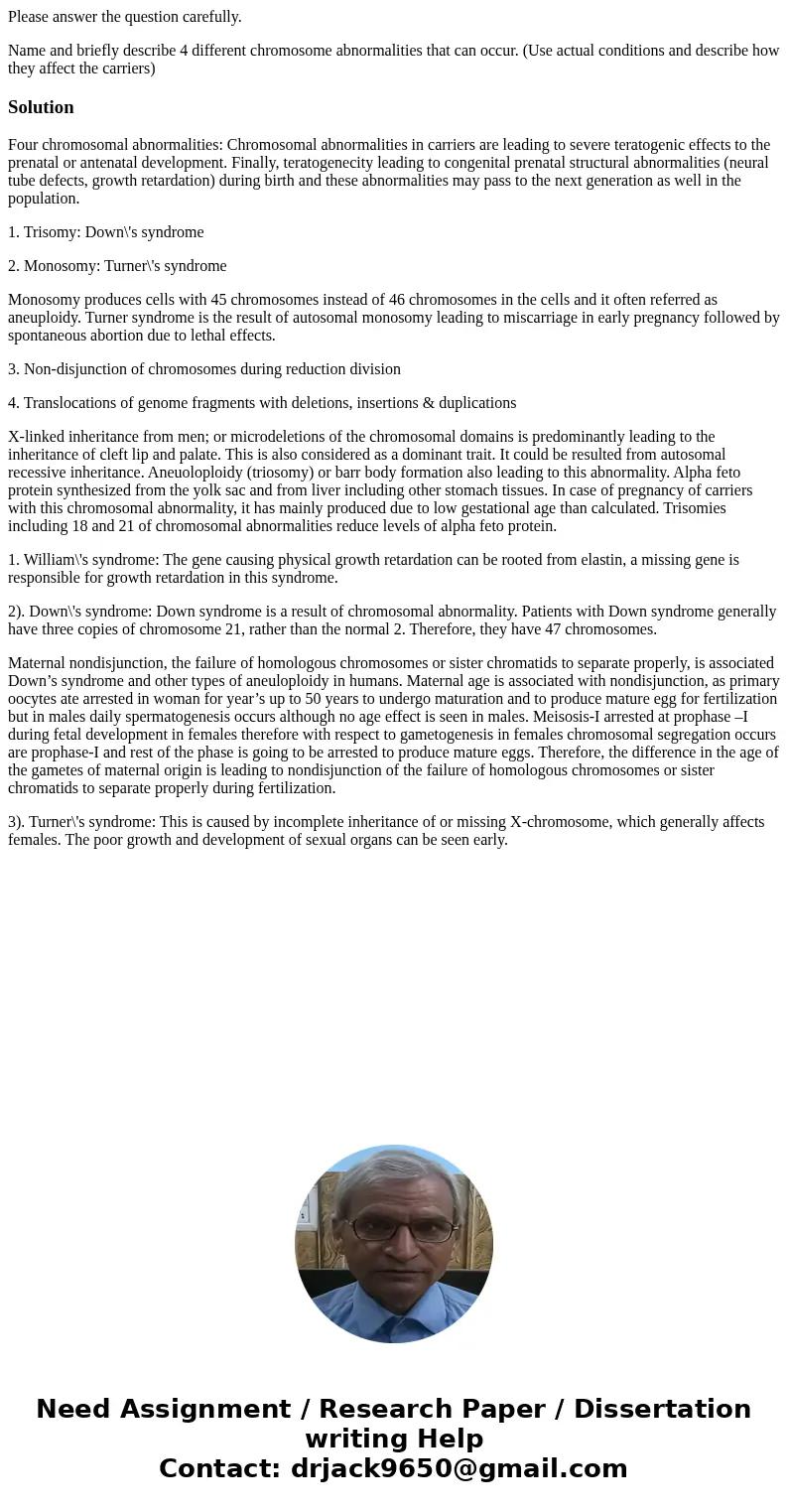Please answer the question carefully Name and briefly descri
Please answer the question carefully.
Name and briefly describe 4 different chromosome abnormalities that can occur. (Use actual conditions and describe how they affect the carriers)
Solution
Four chromosomal abnormalities: Chromosomal abnormalities in carriers are leading to severe teratogenic effects to the prenatal or antenatal development. Finally, teratogenecity leading to congenital prenatal structural abnormalities (neural tube defects, growth retardation) during birth and these abnormalities may pass to the next generation as well in the population.
1. Trisomy: Down\'s syndrome
2. Monosomy: Turner\'s syndrome
Monosomy produces cells with 45 chromosomes instead of 46 chromosomes in the cells and it often referred as aneuploidy. Turner syndrome is the result of autosomal monosomy leading to miscarriage in early pregnancy followed by spontaneous abortion due to lethal effects.
3. Non-disjunction of chromosomes during reduction division
4. Translocations of genome fragments with deletions, insertions & duplications
X-linked inheritance from men; or microdeletions of the chromosomal domains is predominantly leading to the inheritance of cleft lip and palate. This is also considered as a dominant trait. It could be resulted from autosomal recessive inheritance. Aneuoloploidy (triosomy) or barr body formation also leading to this abnormality. Alpha feto protein synthesized from the yolk sac and from liver including other stomach tissues. In case of pregnancy of carriers with this chromosomal abnormality, it has mainly produced due to low gestational age than calculated. Trisomies including 18 and 21 of chromosomal abnormalities reduce levels of alpha feto protein.
1. William\'s syndrome: The gene causing physical growth retardation can be rooted from elastin, a missing gene is responsible for growth retardation in this syndrome.
2). Down\'s syndrome: Down syndrome is a result of chromosomal abnormality. Patients with Down syndrome generally have three copies of chromosome 21, rather than the normal 2. Therefore, they have 47 chromosomes.
Maternal nondisjunction, the failure of homologous chromosomes or sister chromatids to separate properly, is associated Down’s syndrome and other types of aneuloploidy in humans. Maternal age is associated with nondisjunction, as primary oocytes ate arrested in woman for year’s up to 50 years to undergo maturation and to produce mature egg for fertilization but in males daily spermatogenesis occurs although no age effect is seen in males. Meisosis-I arrested at prophase –I during fetal development in females therefore with respect to gametogenesis in females chromosomal segregation occurs are prophase-I and rest of the phase is going to be arrested to produce mature eggs. Therefore, the difference in the age of the gametes of maternal origin is leading to nondisjunction of the failure of homologous chromosomes or sister chromatids to separate properly during fertilization.
3). Turner\'s syndrome: This is caused by incomplete inheritance of or missing X-chromosome, which generally affects females. The poor growth and development of sexual organs can be seen early.

 Homework Sourse
Homework Sourse